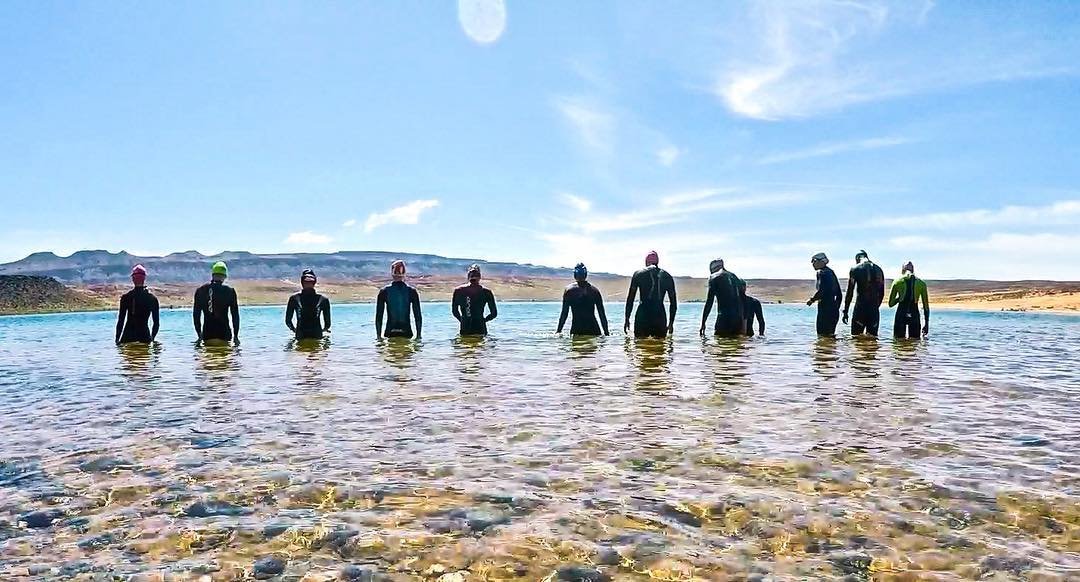Acclimatizing to Open Water: The Mental Preparation It Takes to Make the Transition a Success
Welcome back to the water, triathletes! As the season shifts and the chill in the air begins to thaw (although here in my neck of the woods it’s still pretty crispy!), the call of the open water becomes irresistible. For those of us passionate about triathlon, this signals an exhilarating transition—moving from the controlled environment of a pool to the dynamic, often unpredictable realms of lakes, oceans, and rivers.
Embarking on early season swims isn’t just a test of physical endurance; it's a thrilling adventure that rekindles our love for the sport. Whether it’s the gentle lapping of the waves against your wetsuit or the first rays of dawn shimmering on the water’s surface, there’s a magic in these moments that’s unlike anything else. It’s here, in the crisp mornings and the serene waters, that our winter training is put to the test.
For many intermediate triathletes, this period is a mix of excitement and nervous anticipation. There’s the joy of returning to nature’s swimming pool, coupled with the primal challenge of adapting to its cooler temperatures and variable conditions. Each stroke in open water is about more than just technique; it’s about reconnecting with the elemental parts of our sport and ourselves.
A group of triathletes prepare to get in the water in St. George, Utah, during a development camp. PHOTO CREDIT: Kyle Jensen
Mental Preparation
Diving into open water for early season swims isn't just a physical endeavor—it's a profound mental journey. For intermediate triathletes, mastering the mental game is as crucial as perfecting your stroke. Open water can be daunting with its lack of lane lines, variable conditions, and the sheer expanse of it. However, with the right mental preparation, these challenges transform into exhilarating opportunities.
Building Mental Toughness
Mental toughness in open water swimming isn’t just about enduring cold water or longer distances; it’s about overcoming the unpredictability of natural environments. The key to success lies in developing a mindset that views challenges as part of the adventure. This psychological resilience can turn an ordinary swim into a triumphant exploration of your limits.
Visualization Techniques
One effective way to build this mental fortitude is through visualization. Imagine the scenario in vivid detail: the initial shock of cold water against your skin, the rhythm of your breathing, and the expanse of water stretching before you. See yourself swimming confidently, responding adaptively to waves and wildlife. Regular visualization sessions can enhance your mental readiness, making you as prepared for the sensory experiences of open water as you are for its physical demands.
Setting Realistic Goals
Early season swims are not about setting personal bests; they're about setting realistic, achievable goals. Perhaps it’s swimming a certain distance without stopping or focusing on maintaining a steady pace. These goals should stretch your capabilities but remain achievable, helping to build your confidence piece by piece.
Positive Affirmations and Mindset Shifts
Positive affirmations can also play a significant role in your mental preparation. Simple statements like "I am strong," "I am capable," and "I am a confident open water swimmer" can profoundly impact your self-belief. Coupled with mindset shifts that frame challenges as opportunities for growth, these affirmations reinforce your inner strength.
Elite triathletes at the World Triathlon Mixed Team Relay in Edmonton, Alberta PHOTO CREDIT: Kyle Jensen



